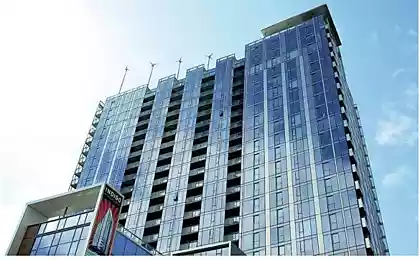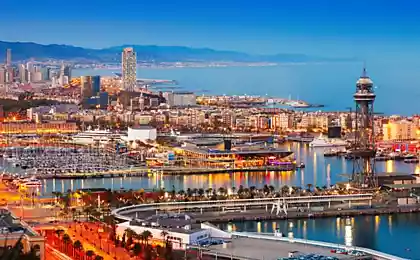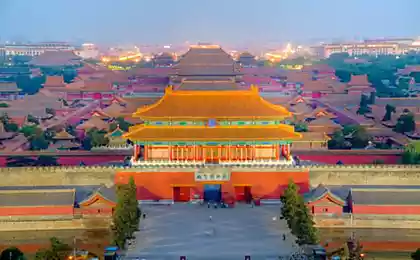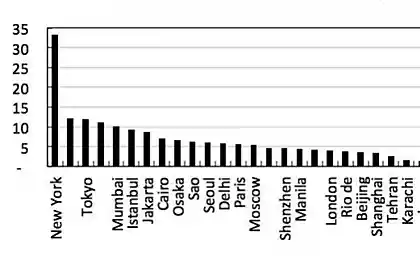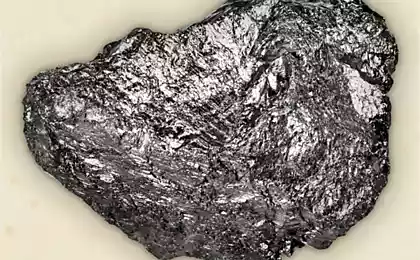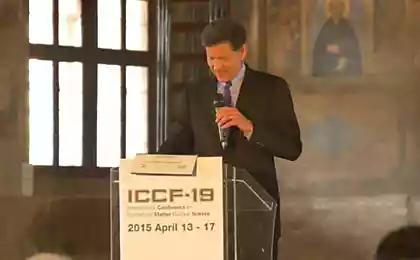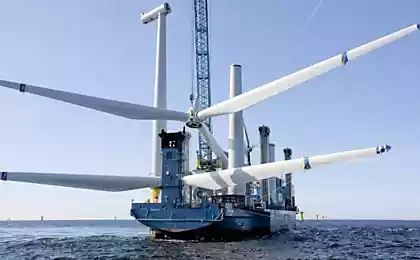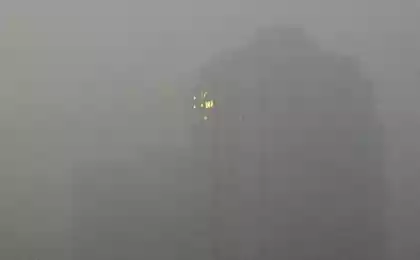477
Urbanization is harmful to health of mankind
Rapid urbanization brings with it significant problems for the health of the population if planning and urban development will include measures to combat air pollution, scientists warn in a report prepared last month in Beijing.
The study was conducted by the world meteorological organization, Geneva, Switzerland, and the International organization for the study of atmospheric chemistry of the Earth, Colorado, USA. Experts surprised by the growth of megacities – Metropolitan areas with a population of over 10 million people in developing countries.
In the world there are 23 of the metropolis, whereas only 60 years ago there were two. More than half the population currently lives in cities. It is expected that by 2050 the urban population will double, and the proportion will increase to 70% to 30%. As scholars have noted, almost half of that growth occurring in the developing world.
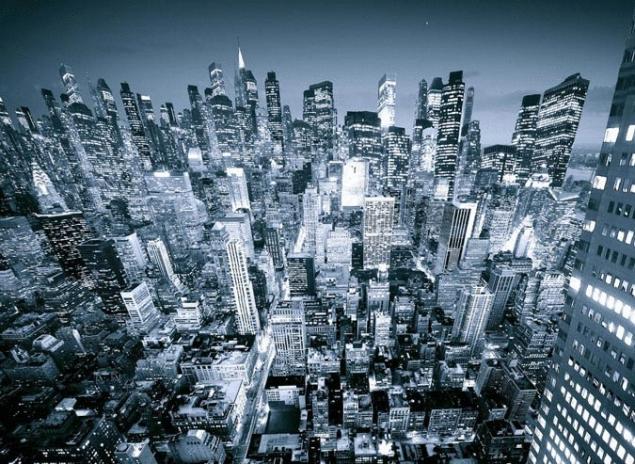
In the big cities more opportunities in terms of work and education, and a well-planned and densely populated residential areas reduce the need for new land development and more efficiently use energy.
More than half of the most polluted cities in the world located in Asia, and air pollution annually contributes to half a million deaths, according to a recent study by the Asian development Bank. More than two thirds of Asian cities (compared to one-fifth the scale of the rest of the world) do not adhere to European Union standards on air quality for certain pollutants.
"Part of the problem lies in the pace of development", — said Zhu Tong. The urban population in China increased nearly five times since 1950, what caused the jump in power consumption and increase the number of cars on the roads, and also formed the foci of pollution, such as the infamous "Beijing smog".
In Beijing the level of air pollutants associated with respiratory and cardiac diseases, is steadily increasing. Over the past three decades, the concentration of ground level ozone has increased six-fold, and the current level is twice the standards set by the Agency for environmental protection of the United States.
The concentration of airborne particulates with a diameter less than 2.5 microns in the atmosphere of Beijing usually ranges from 100 to 150 micrograms per cubic meter, and is 6-10 times more than the standard set by the Agency. Scientists believe that the impact of such concentrations monstrous. It is estimated the death rate in large cities increased by 1% with each increase in particulate matter of 10 micrograms per cubic meter.
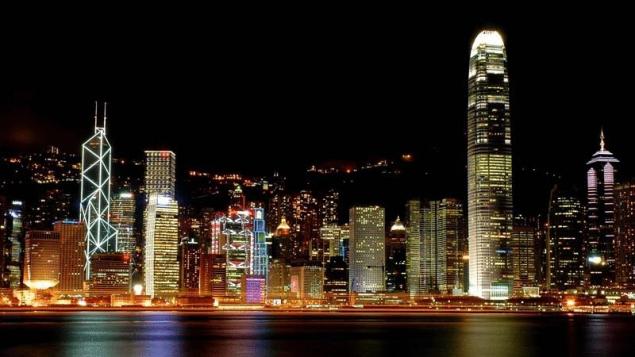
In February, China's state Council introduced legislation aimed at curbing the growth level ozone and particulate matter, and other emissions. Standards to be introduced by 2016, are consistent, and in some aspects superior to their counterparts in the United States or the European Union. This step is a continuation of requirements that were introduced in 1996 that helped to significantly reduce emissions of substances such as sulfur and carbon monoxide gases. These requirements set standards for emissions of motor vehicles and encouraged the use of natural gas and coal with little sulphur content.
"To meet the new standards, particularly with regard to ozone and particulates will require a strategically new approach to reducing emissions", says Shao Min, another scientist in the field of atmospheric science from Peking University. Unlike sulfur dioxide and carbon monoxide gases that enter the atmosphere directly from their sources, ozone and particulates are secondary pollutants formed by chemical reactions between a number of different precursors in the atmosphere. "This means that we have to spread a much wider net, rather than focusing on only a few precursors," — says the expert.
In Beijing imposed the most stringent emission controls over China, but a significant portion of pollutants come from the surrounding regions, said Zhu Tong. For example, during the Olympic games 2008 in Beijing, air masses from the South could 34-88% to form peak ozone concentrations in the city. "Air quality of Beijing will not significantly improve until the existing measures will not be able to overcome administrative barriers," says Zhu.
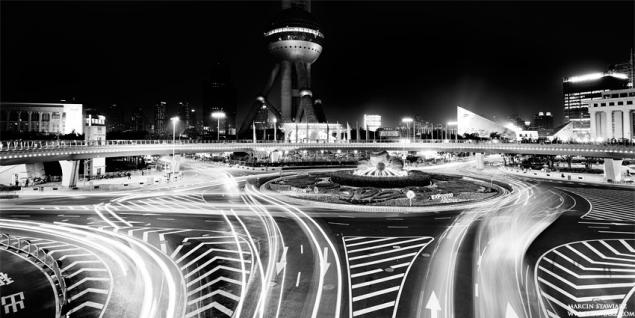
Source: /users/104
The study was conducted by the world meteorological organization, Geneva, Switzerland, and the International organization for the study of atmospheric chemistry of the Earth, Colorado, USA. Experts surprised by the growth of megacities – Metropolitan areas with a population of over 10 million people in developing countries.
In the world there are 23 of the metropolis, whereas only 60 years ago there were two. More than half the population currently lives in cities. It is expected that by 2050 the urban population will double, and the proportion will increase to 70% to 30%. As scholars have noted, almost half of that growth occurring in the developing world.

In the big cities more opportunities in terms of work and education, and a well-planned and densely populated residential areas reduce the need for new land development and more efficiently use energy.
More than half of the most polluted cities in the world located in Asia, and air pollution annually contributes to half a million deaths, according to a recent study by the Asian development Bank. More than two thirds of Asian cities (compared to one-fifth the scale of the rest of the world) do not adhere to European Union standards on air quality for certain pollutants.
"Part of the problem lies in the pace of development", — said Zhu Tong. The urban population in China increased nearly five times since 1950, what caused the jump in power consumption and increase the number of cars on the roads, and also formed the foci of pollution, such as the infamous "Beijing smog".
In Beijing the level of air pollutants associated with respiratory and cardiac diseases, is steadily increasing. Over the past three decades, the concentration of ground level ozone has increased six-fold, and the current level is twice the standards set by the Agency for environmental protection of the United States.
The concentration of airborne particulates with a diameter less than 2.5 microns in the atmosphere of Beijing usually ranges from 100 to 150 micrograms per cubic meter, and is 6-10 times more than the standard set by the Agency. Scientists believe that the impact of such concentrations monstrous. It is estimated the death rate in large cities increased by 1% with each increase in particulate matter of 10 micrograms per cubic meter.

In February, China's state Council introduced legislation aimed at curbing the growth level ozone and particulate matter, and other emissions. Standards to be introduced by 2016, are consistent, and in some aspects superior to their counterparts in the United States or the European Union. This step is a continuation of requirements that were introduced in 1996 that helped to significantly reduce emissions of substances such as sulfur and carbon monoxide gases. These requirements set standards for emissions of motor vehicles and encouraged the use of natural gas and coal with little sulphur content.
"To meet the new standards, particularly with regard to ozone and particulates will require a strategically new approach to reducing emissions", says Shao Min, another scientist in the field of atmospheric science from Peking University. Unlike sulfur dioxide and carbon monoxide gases that enter the atmosphere directly from their sources, ozone and particulates are secondary pollutants formed by chemical reactions between a number of different precursors in the atmosphere. "This means that we have to spread a much wider net, rather than focusing on only a few precursors," — says the expert.
In Beijing imposed the most stringent emission controls over China, but a significant portion of pollutants come from the surrounding regions, said Zhu Tong. For example, during the Olympic games 2008 in Beijing, air masses from the South could 34-88% to form peak ozone concentrations in the city. "Air quality of Beijing will not significantly improve until the existing measures will not be able to overcome administrative barriers," says Zhu.

Source: /users/104
